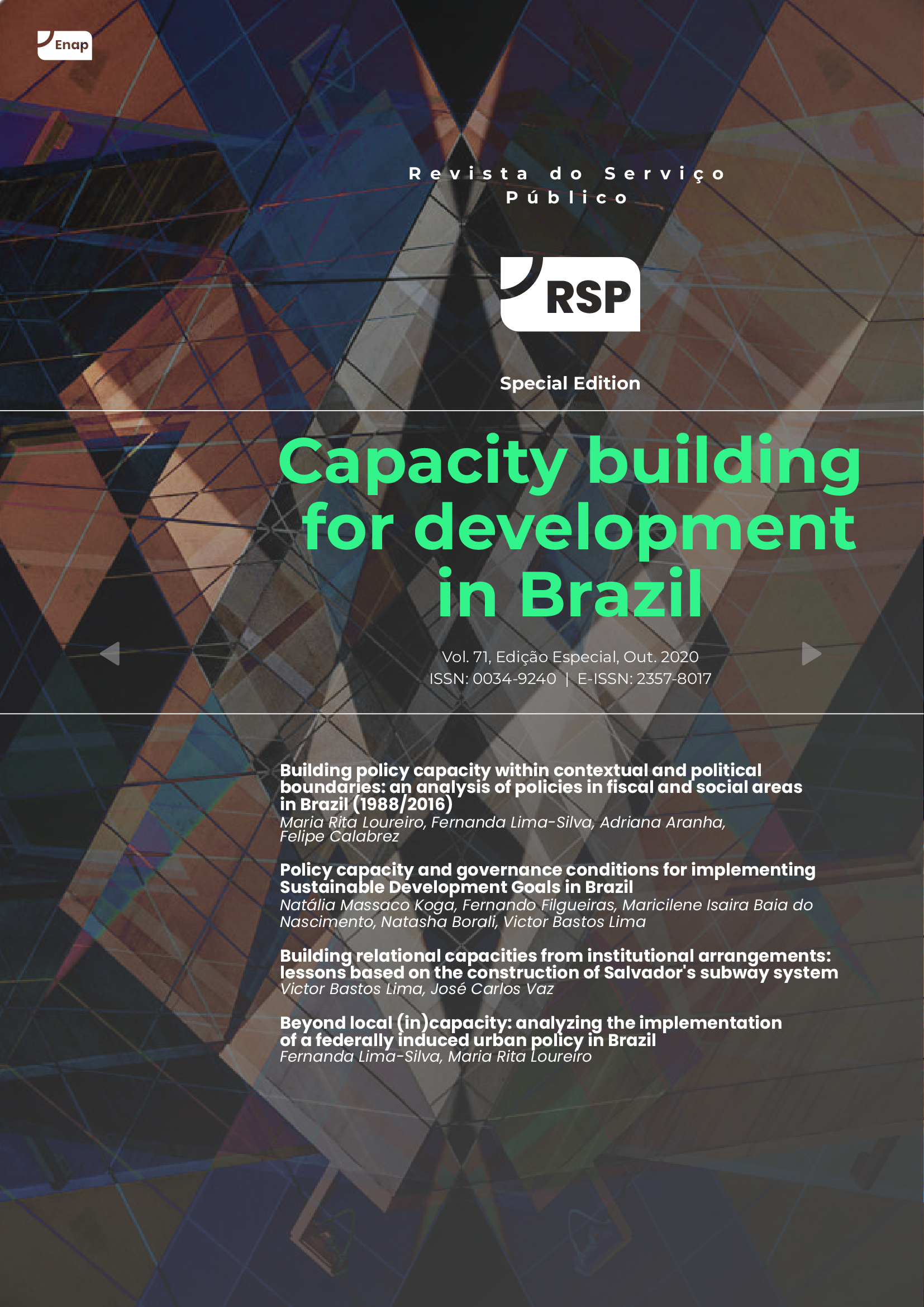Policy capacity and governance conditions for implementing sustainable development goals in Brazil
DOI:
https://doi.org/10.21874/rsp.v71ib.4059Palabras clave:
Sustainable Development Goals, governance, policy capacities, analytical capacities, developmentResumen
This article examines governance conditions for implementing the United Nations’ Sustainable Development Goals (SDGs) in Brazil. The SDGs are a commitment (signed and adopted in September 2015 by 193 countries) to achieve 17 key milestones by 2030 for formulating and implementing public policies that promote economic, social, and environmental development. Yet the Goals’ multifaceted and imbricated nature poses expressive challenges. One argues that the SDGs provide a rich set of interconnected policies to address key aspects of the governance debate, such as the capacities in a complex policy-implementation context; the association between administrative and relational policy capacities; and the dynamics of governance tools. This investigation entails quanti-qualitative analysis based on data produced by semi-structured interviews and a survey with a random sample of the Brazilian federal bureaucracy, answered by 2,000 individuals. The main findings are that the SDGs require a governance strategy capable of building capacity for promoting collaboration among state and society, horizontal and vertical coordination, and data and information for developing analytical capabilities. In sum, SDGs require higher levels of capacities, leadership, and proper institutional design to reach the necessary levels of collaboration for producing coherent and integrated policies, so leadership materializes as the main critical condition for SDGs’ implementation in Brazil.
Descargas
Descargas
Publicado
Cómo citar
Número
Sección
Licencia
Derechos de autor 2020 Revista do Serviço Público

Esta obra está bajo una licencia internacional Creative Commons Atribución-NoComercial-CompartirIgual 4.0.
- A RSP adota a licença Creative Commons (CC) do tipo Atribuição – Uso Não-Comercial (BY-NC).
- A licença permite que outros remixem, adaptem e criem obra licenciada, sendo proibido o uso com fins comerciais.
- As novas obras devem fazer referência ao autor nos créditos e não podem ser usadas com fins comerciais, porém não precisam ser licenciadas sob os mesmos termos dessa licença.
- Ao publicar o artigo na RSP, o autor cede e transfere para a ENAP os direitos autorais patrimoniais referentes ao artigo.
- O artigo publicado na RSP não poderá ser divulgado em outro meio sem a devida referência à publicação de origem.
- O autor que tiver o artigo publicado na RSP deverá assinar o Termo de Concessão de Direitos Autorais (em momento oportuno a editoria da Revista entrará em contato com o autor para assinatura do Termo).



